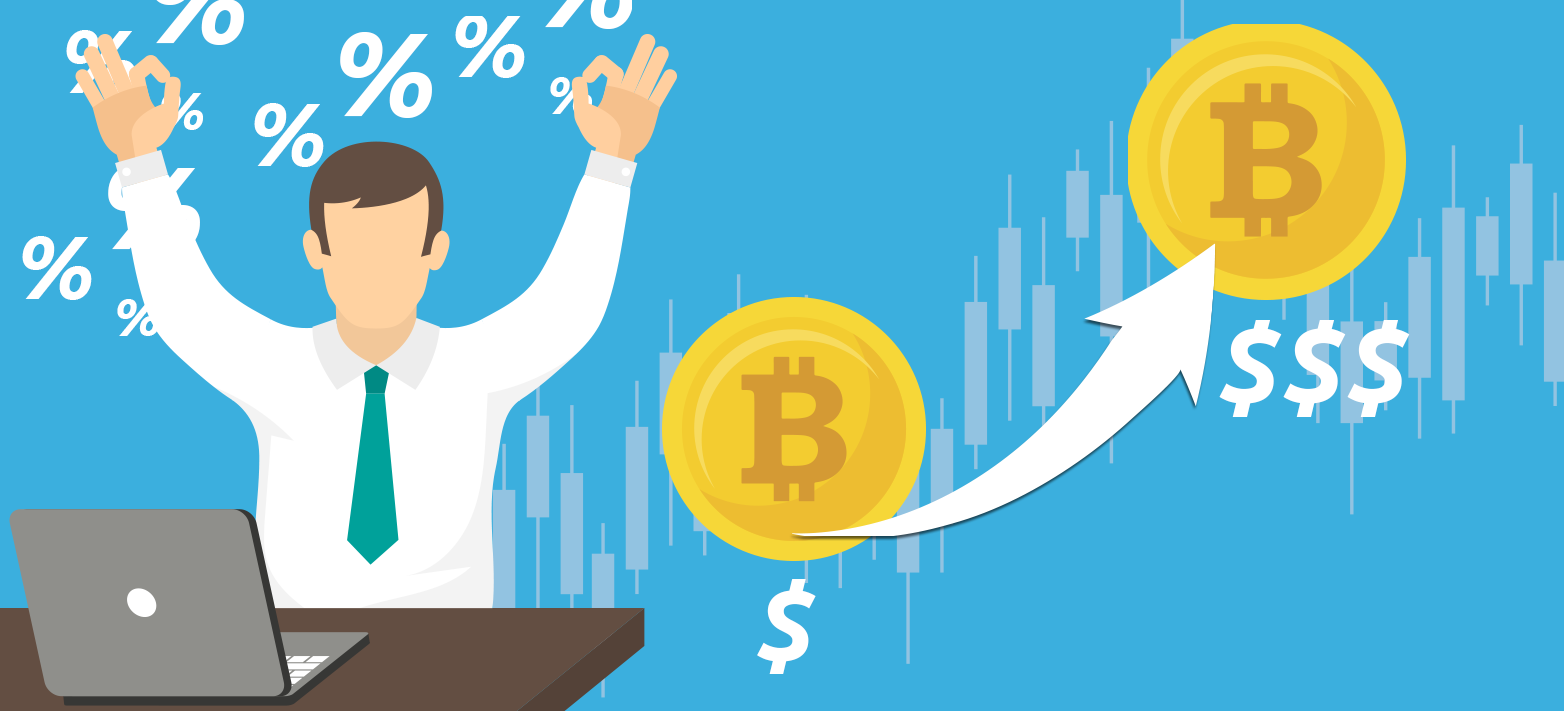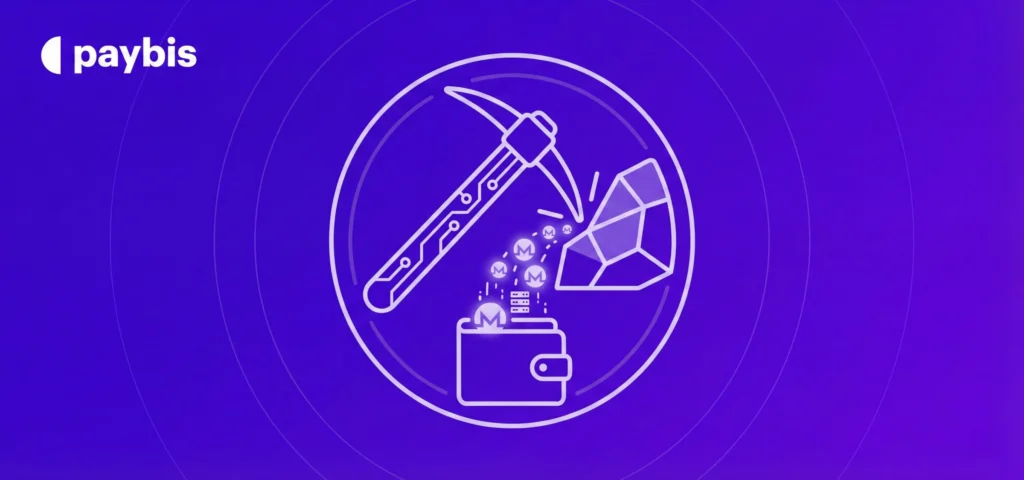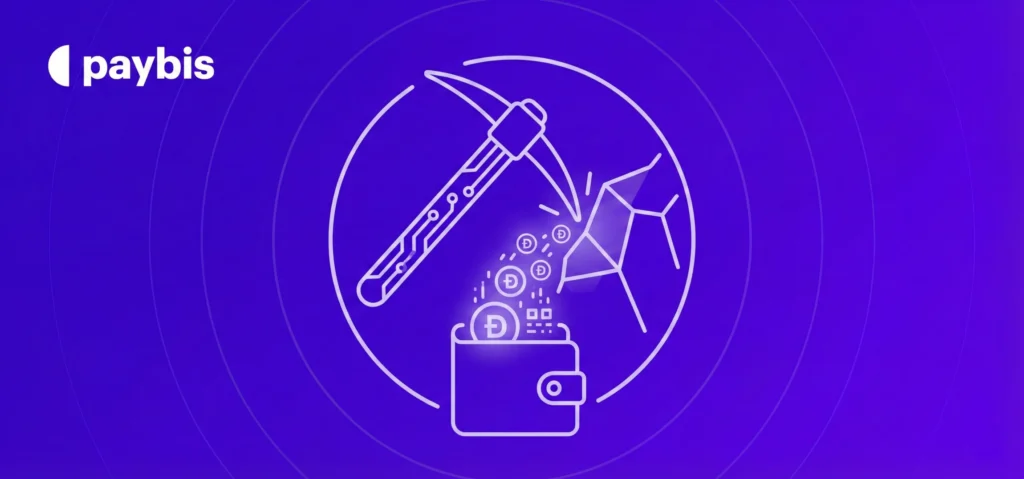An Introduction to Cryptocurrency Arbitrage Trading
Cryptocurrencies open different opportunities for making money. One of them and the one we will be discussing in this article is cryptocurrency arbitrage.
We will explore the concept behind it, and more importantly, we will investigate if this is a legitimate and sustainable way to make a profit in the cryptocurrency world. As a cryptocurrency enthusiast and a trader, I wanted to share my analysis in order to determine if arbitrage is only a fluke or a real opportunity to spruce up your daily trading.
Table of contents
- What is Cryptocurrency Arbitrage?
- An oversimplified Cryptocurrency Arbitrage Trading example
- How is a cryptocurrency price determined on a given exchange
- Advantages of Cryptocurrency arbitrage trading
- Risks involving Cryptocurrency Arbitrage Trading
- How Paybis can help
- An alternative example of arbitrage trading
- What to consider before cryptocurrency arbitrage trading
- Conclusion
What is Cryptocurrency Arbitrage?
We can define arbitrage as trading the same asset with different prices on different markets. This means that we could buy an asset on one market and sell it with a price difference on another, making a profit in the process. As such, the price difference allows some people to take advantage of this opportunity and make a profit.
This is by no means a novel concept. Arbitrage has existed for a very long time, as goods or currencies were exchanged and the economic laws of supply and demand have generated price corrections throughout history.
The model is applied daily in the forex and stock markets as well but is not easily accessible to retail traders, as you often need to go through brokers and have large funds available in order to participate.
An oversimplified Cryptocurrency Arbitrage Trading example
Let’s take two different cryptocurrency exchanges into consideration. On one of them, the price of Bitcoin is $10.500. Now assume that some good cryptocurrency announcement goes live, the sentiment in the market becomes very positive to buying Bitcoin, and the price increases following the increased demand.
You become aware that, on another exchange, the price of Bitcoin is at $11.000. This means that an opportunity to make profit rises from the price difference for the same asset (here, Bitcoin) on two different cryptocurrency exchanges.
You buy one Bitcoin for 10.500 dollars on the first exchange and transfer that Bitcoin to the other. You sell the same Bitcoin for 11.000 dollars on the second exchange and make 500 dollars profit thanks to the price difference.
But things are not always that simple.
And just like that, reality happens…
Here’s a more realistic version of what happens during an arbitrage attempt. As you buy from the first exchange, the Bitcoin supply decreases and the demand increases, driving the price upwards.
On the second exchange, as you bring in more Bitcoin, the supply increases and the demand decreases, driving the Bitcoin price downwards. This trade is repeated several times and the 500 dollar gap that was present before, gradually closes as the prices between the two markets start leveling.
Now your Bitcoin is worth 10.800 dollars on both markets and the arbitrage opportunity is not luring as before. However, you still made some profit with little to no effort or risk. You had the right information at the right time and were willing to exploit the opportunity to your advantage. This positive action on the market has kept arbitrage trading completely legal, as it works toward balancing market prices.
Note that this example is entirely hypothetical and ignores trading and transfer fees, transaction processing times and potential price movements between transactions. There are quite a few important caveats that you need to be aware of before delving into Cryptocurrency Arbitrage Trading yourself.
One of the important things to understand is how the price calculation happens in different markets.
How is a cryptocurrency price determined on a given exchange
Before we start selling high and buying low, we need to understand how a given cryptocurrency price is defined in an exchange.
As with other assets, the driving factor of a cryptocurrency’s price is supply and demand. The determining factor is always the last trade done on that exchange.
But different exchanges have a different number of traders and offer different cryptocurrencies on their platform. The exchanges aren’t directly linked with one another and demand is generated by the buyers’ and sellers’ preferences.
Unlike the stock market, cryptocurrency exchanges are open 24 hours a day. Therefore, when some of them have regional restrictions for trading, the price might lag behind, rendering price correction nonsimultaneous in different parts of the world.
In addition, some exchanges have low trading activity, making the prices of cryptocurrencies on them even more volatile. Volatility, in this case, refers to the drastic upward or downward movement in a coin’s price.
So, taking all of these factors into consideration, it is only normal that the price does not correlate all the time. As a result, traders want to buy a cryptocurrency for a lower price on one exchange and sell them for a higher price on another.
Arbitrage does have its fair share of advantages that could result in good money-making opportunities for traders.
Advantages of Cryptocurrency arbitrage trading
Why would people consider arbitrage trading in crypto? Well, there are quite a few benefits in doing so:
- It is a fast way to turn a profit while trading. To complete an arbitrage deal, it takes as little time as completing the trades involved in the process. This takes a lot less time than taking the traditional approach of buying and holding a cryptocurrency to sell it later at a profit.
- There’s no need for vast knowledge about a cryptocurrency to make a successful trade. When you are day trading, you need to rely on good technical analysis and continuous following of the news about that particular cryptocurrency. In order to turn out a profit, you need to be able to make an informed decision. In the case of arbitrage trading, you only need the information on the price difference between the exchanges.
- There’s a huge range of exchanges. According to CoinMarketCap at the time of writing (July 2019) there are more than 150 exchanges around the world, generating a lot of opportunities for arbitrage trading.
- Cryptocurrencies are volatile. Whenever there’s volatility, there’s potential for the price difference. The information transfer between exchanges is slow and disjointed, which as a result creates arbitrage opportunities.
In theory, all of this sounds like a pretty good way to make a profit. We could almost start to wonder why everybody isn’t doing it? Well, there are several barriers and risks that one needs to keep in mind in order to trade profitably.
Risks involving Cryptocurrency Arbitrage Trading
Here’s a list of potentially deal-breaking barriers for beginner traders. We will try to find solutions to some of these, but remember that there will always be some risk involved.
KYC regulations
KYC (Know Your Customer) regulations can place different barriers on exchanges for the traders. They can vary from account verification that can take more than 24 hours or owning a bank account where at the exchange’s base location. The KYC process is often mandatory when there is a request for a large transfer or withdrawal of cryptocurrency. Some exchanges, however, have different levels of verification which allow withdrawals of a limited amount of cryptocurrency without the need for ID-verification.
Storing Coins on exchanges
In order to be able to access your coins quickly, you need to keep them on the exchange wallet. There have been a lot of cases where exchanges have been hacked and users lost their funds. You don’t really own your crypto if it’s not in your wallet.
Regional restrictions
Most of the exchanges have some kind of regional restriction for traders to be able to use their services. This may, in some cases, hinder your ability to exploit the arbitrage opportunity.
Exchange fees
Most of the exchanges charge fees for trades, but also transfers and/or deposits. You need to factor in these costs before trading or you might see your profits melt into fees.
Large amounts for trades might be required
When taking into consideration the small price differences and the trading fees, a large sum might be needed in order to make a profitable trade.
Withdrawal limits
Be aware that most exchanges have daily or weekly withdrawal limits. When limited to a certain amount, you might not be able to trade your desired amount, nullifying your profits in the process.
Slow transactions and failing to execute orders in time
One of the biggest risks of arbitrage trading is having the market turn on you while you are trying to do your transaction. If you buy and sell orders aren’t done in a timely manner, you might see a potentially profitable trade become a loss. As you are transferring funds between different exchanges, it is also very difficult to set a failsafe like stop loss for your trades.
How Paybis can help
Well, that’s a pretty big list of potential problems a trader might encounter while trying to practice arbitrage trading. Paybis remedies quite a few of these by:
Shortening the KYC process
On Paybis, users can complete their verification in about 5 minutes.
Not storing your coins on the exchange
Instead, Paybis sends them directly to your wallet. This feature eliminates both the fund withdrawal limit barrier as well as the fact that you stay in control of your funds 100% of the time.
Covering more than 180 countries
Paybis supports almost all countries worldwide, with a few small exceptions. You can check these here.
Fast and easy
Paybis has a very simple interface. As such, investors of all levels can use to perform their trader in an easy manner.
An alternative example of arbitrage trading
Many traders use an alternate method for their arbitrage efforts. This method skips the deposit and withdrawal fees and eliminates transfer times between exchanges.
You might be wondering why we haven’t explored this method in the first place. Well, the reasons are quite simple. This arbitrage method involves storing both fiat and cryptocurrencies on two or more different exchanges. We already covered the problems of storing crypto and fiat directly on exchanges in the previous chapters. As such, we can now see how there are more risks involved.
When one decides to involve smaller and less secure exchanges, the risks of a cyber attack and losing your funds increase dramatically. You might want to weigh the pros and cons carefully before placing funds on different exchanges.
Nevertheless, let’s go through the basics of such a trade. Even though it is risky, it is widely employed by experienced traders that dispose of larger amounts of crypto and fiat.
How to find crypto arbitrage opportunities
Choose two or more reputable exchanges that are known for their safety and reliability. This likely means that you need to go through their KYC and withdrawal policies, their history and user experience reviews. Once you’ve completed that first step, you need to deposit a fairly large sum of both Bitcoin and fiat currency (let’s say US dollars) that the exchange proposes as a market pair with Bitcoin. This needs to be done on all of the exchanges that you have chosen to use for arbitrage.
Follow the price differences on these two exchanges
At the moment a price discrepancy occurs, you should sell your Bitcoin for dollars on the exchange where the price is higher and buy more Bitcoin on the exchange where its price is lower.
This way you accumulate both US Dollars and Bitcoin at the same time, with one caveat: you don’t have direct access to either of your funds.
If you are willing to accept that risk, you can continue performing arbitrage this way. Just make sure you set yourself a percentage of profit and sell your coins when the right time comes.
By arbitrage trading on multiple exchanges, you effectively eliminate the deposit fees, but most importantly, the transfer times between your wallets and the exchanges.
As seen before, timing is crucial in cryptocurrency trading because the volatility alone could destroy any hope for profit while you are waiting for your funds to transfer from an exchange to your wallet.
In addition to this alternate method, let’s explore how a trader can reduce the risk taken before committing to a trade.
What to consider before cryptocurrency arbitrage trading
Now that you know what problems you might be facing when adventuring into your first live cryptocurrency arbitrage trade, we can explore what key information you should consider.
- Here’s a list of all of the possible fees you might be asked to pay when trading.
- Fiat deposit fees
- Fiat withdrawal fees
- Bitcoin withdrawal fees
- Trading fees (aka commissions)
Every time you want to perform an arbitrage trade, you must acknowledge these different fees. Some exchanges might apply all of them, some not. Rates are often very different between exchanges. What they charge will be likely a deciding factor if you should tempt an arbitrage opportunity.
- Look for new listings. When an exchange lists a new cryptocurrency, there is usually a demand limit for it. This might be helpful to find a large price difference for the same asset. Follow the forums or twitter accounts of different exchanges to know when a new coin will be listed.
- Check the exchanges’ policies. Even if this might be a natural response to the list of barriers stated before, you don’t want to get stuck in front of a KYC withdrawal demand that might take days and eliminate all opportunity of making a profit and even result in a loss.
- Use trusted exchanges. Exchanges like Paybis with a high number of positive reviews and real testimonials show that there’s real support behind the service. Be careful when trading on exchanges with low user ratings. They often have hidden fees or artificial barriers to accessing your funds.
- Try using something else than Bitcoin when transferring. Bitcoin is clearly the most popular cryptocurrency out there, and sometimes large transactions can take a lot of time. As time is crucial when doing arbitrage, you might want to consider another cryptocurrency like Ethereum or Litecoin to transfer your funds between exchanges.
Conclusion
It is an undeniable fact that arbitrage opportunities appear often on the cryptocurrency market. As such, these can sometimes be a good source of additional profit for traders. We also need to consider that these opportunities are not easy to spot for a beginner trader. They are also not that easy to execute as their theoretical explanation might imply.
Arbitrage does not require in-depth knowledge of a given coin. However, it does require a good understanding of the different exchanges, their policies, transaction fees, time constraints, etc.
Taking into consideration all of the problems one might encounter while cryptocurrency arbitrage trading, as well as the large amounts of funds that need to be put at risk, it might be safe to say that profit is not a realistic outcome for most traders.
For a fee, different signal services or automatic trading bots propose solutions for a sustainable arbitrage trading, but you need to remain very skeptical of this. First of all, they often show off very unrealistic profit numbers which should always be a red flag in crypto.
There is also the fact that it would be completely counterproductive for them to sell the software instead of using the signals themselves. Remember, as arbitrage happens, it also slowly goes away as the price levels in different markets. Therefore, you want less competition doing the same trades, effectively reducing the price gap. This, as a result, will give you more time to do the trading loops.
All in all, there’s no such thing as free money or easy profit. Of course, you can keep an eye on arbitrage opportunities, as they will arise at one point. Just remember to do your homework and balance out the pros and cons before you carry out a trade.
Disclaimer: Don’t invest unless you’re prepared to lose all the money you invest. This is a high‑risk investment and you should not expect to be protected if something goes wrong. Take 2 mins to learn more at: https://go.payb.is/FCA-Info







